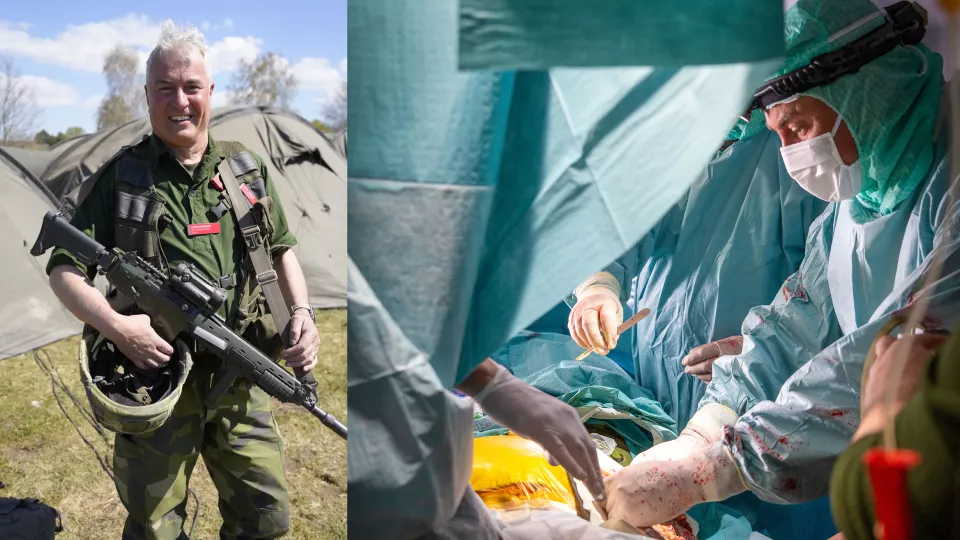– The most important lesson is a focus on teamwork, and that everyone, regardless of grade/position, contributes in an important way to the task they have been given. I sometimes feel that the team spirit is lacking in healthcare and that different categories of staff do not always work together in an optimal way. In academia, many are distinctly individualists and competition is very fierce for grants and services. Through more open collaborations across borders, I believe more interdisciplinary research could be conducted.
– Furthermore, military personnel often work in so-called combat couples, where one has the task of monitoring how the other is doing, that one rests properly, eats and drinks when needed or provides support if one has experienced something traumatic. They care about each other in a natural way, something that often characterizes modern military leadership. I think we could apply this way of thinking in both academia and healthcare, both hierarchical organizations where many feel bad.
Tove Smeds, communicator and wall-rapping LUM reporter, what was it like to be a patient?
– Stefan did not know that I would be a "marker" as it is called in the military exercise. However, we had planned to write an article about his involvement based on the university's motto "prepared for both". In order for the medics to take me to Stefan's ward, the trauma troupe, you had to have extensive injuries, so they put on a lot of makeup. It was a memorable report to do in many ways, and given the reality in the outside world also frightening. And it was still a bit funny that we managed to fool Stefan...
How are you today?
– I quickly recovered from the pretend surgery! The only side effects from the exercise were that the paint sat in hard for a couple of days.


